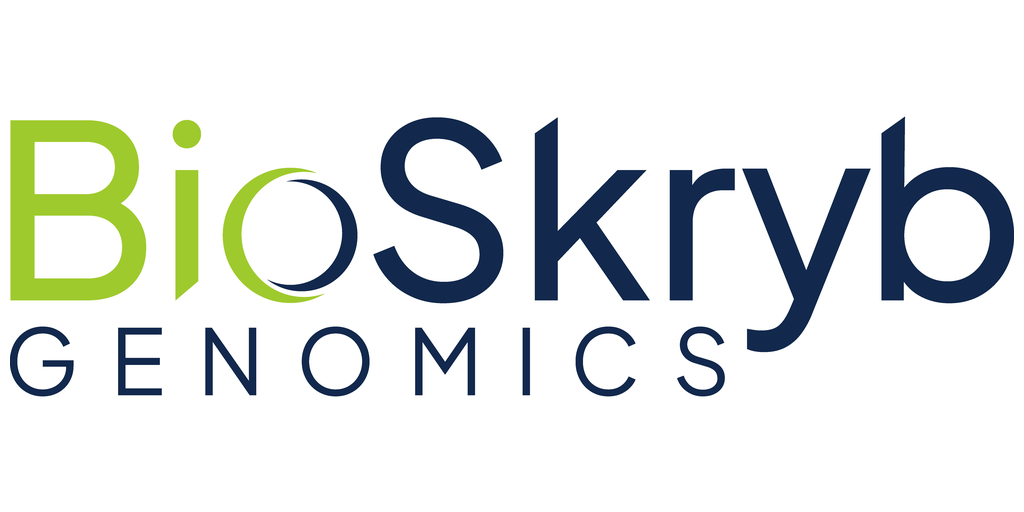- ResolveSEQ MRD offers paired single cell genome and transcriptome characterization for discovering novel prognostic and therapeutic signatures in MRD cells
- New Certified Service Provider (CSP) Program will enable broader access to BioSkryb’s technology
DURHAM, N.C.--(BUSINESS WIRE)--BioSkryb Genomics, a pioneer in single-cell and ultra-low input multiomics is excited to announce the launch of ResolveSEQ MRD, an innovative service offering designed to empower further classification and characterization of the MRD cells for hematologic malignancies. ResolveSEQ MRD integrates seamlessly with established flow cytometry (FC) protocols to provide unparalleled single-cell genome and transcriptome characterization, offering deeper biological insights to drive greater discoveries in precision oncology.


Transforming MRD from Detection to Actionable Insights
MRD is used to describe the small number of hematologic cancer cells remaining after a course of treatment, and detecting these cells enables disease risk stratification to optimize treatment and improve patient outcomes. MRD monitoring has transformed patient care for hematological malignancies like acute lymphoblastic leukemia, acute myeloid leukemia, chronic lymphocytic leukemia, and multiple myeloma. While traditional MRD assays effectively identify residual cancer cells, they fail to elucidate the underlying reasons for treatment resistance and disease persistence. ResolveSEQ MRD addresses this gap by:
- Single-Cell Genome and Transcriptome Analysis: ResolveSEQ MRD performs paired single-cell genome and transcriptome sequencing on MRD cells identified through FC, enabling comprehensive molecular profiling.
- Clonal Evolution Mapping: By constructing phylogenetic trees, ResolveSEQ MRD visualizes the clonal relationships between MRD cells and pre-treatment samples, revealing the evolutionary pathways contributing to disease persistence.
- Risk Stratification: The platform has the ability to begin classifying MRD-positive patients into low-risk and high-risk categories based on identified mutations and expression patterns within each subclone. This will help guide researchers and clinicians to an MRD solution that is both quantitative and qualitative: not just detecting residual disease but understanding why it endures and how to target it with biomarker-based risk assessment and MRD directed therapy.
“The detection of MRD has become a standard for the management of most hematologic malignancies, as the prognostic value helps clinicians guide patients to the optimal treatment intensity for their disease risk while reducing unnecessary exposure to toxic therapies,” said Charles Gawad, MD, Ph.D., Chief Scientific Officer and Co-Founder of BioSkryb Genomics. “What has been missing is a way not just to detect the MRD, but also to understand the unique features that enable those cells to survive when the vast majority of the other cancer cells have been eradicated. This is what we are providing with our ResolveSEQ MRD approach, where researchers can now get the highest quality paired genome and transcriptome data from each MRD cell to ask why the chosen therapeutic approach didn’t work on those cells. I anticipate that this will result in discoveries that will eventually allow us to further personalize therapy for patients based on specific biological features of their persistent disease.”
“With MRD becoming an increasingly critical endpoint in clinical trials and standard-of-care protocols, ResolveSEQ MRD’s potential to provide actionable insights positions BioSkryb Genomics at the forefront of precision oncology research. The platform has the capacity to enhance risk stratification and therapy personalization while accelerating the development of novel therapeutics by offering a deeper biological understanding of treatment resistance mechanisms,” said Suresh Pisharody, CEO of BioSkryb Genomics. “As we continue to push the boundaries of what’s possible to enhance the standard of care in heme malignancies, our commitment remains unwavering—to empower cancer centers, biopharma, and diagnostics with the tools they need to deliver the best possible outcomes for patients. ResolveSEQ MRD represents a significant leap forward in our long-term mission of integrating our cutting-edge single-cell multiomics platforms into everyday clinical practice.”
To meet the growing demand for its industry-first multiomic products and services, BioSkryb Genomics is excited to introduce the Certified Service Provider (CSP) Program. ResolveSEQ MRD and BioSkryb’s other single-cell technology offerings will now be available through this new CSP program, initially expanding the company’s capacity in the United States, with plans for international growth. The program features expert partners who have been fully trained to use BioSkryb’s products within their own laboratories and are able to provide an end-to-end solution for customers. Additionally, some CSP participants are equipped to perform BioSkryb’s workflows in regulated environments, enabling more researchers to have access to its powerful technology with trusted partners without establishing protocols in their own laboratories, which enables cost and time savings for customers.
About BioSkryb Genomics
BioSkryb Genomics is a rapidly growing organization that is transforming single-cell molecular discovery and analysis. Through its single-cell whole genome and transcriptome amplification tools and services, scientists and clinicians can gain an unprecedented view of the genome, transcriptome, and targeted proteins from each single cell to better understand the drivers and mechanisms of those diseases, which they aim to translate into the improved management of complex diseases. The company is headquartered in Durham, North Carolina. For more information, visit bioskryb.com.
Contacts
Media Contact
Kalyn Schieffer for BioSkryb
kos@anzupartners.com




